
🌏 A tour of China's electrostate
My visit to China's cleantech factories, labs, and HQs
Takeaways from five days of hallway and main-stage conversations at NYCW
It’s tough to truly prepare for NY Climate Week. Even the best-laid schedules are chaotic and the comfiest shoes won’t keep sore feet at bay. Policymakers, activists, investors, founders, and corporate sustainability teams alike descended upon NYC, where we were on the ground geeking out at climate “Burning Man” to workshop and network on this burning planet.
Gatherings and conversations at NY Climate Week run the gamut from thousands marching in protest against fossil fuels to Janet Yellen and Ursula van Der Leyen discussing global climate finance to Lowercarbon’s Chris Sacca dropping f-bombs and claiming our species is doomed if we don’t quickly adopt solar geoengineering. NYCW is everyone from activists to billionaires to billionaire activists. Some events required a suit and tie, while others felt like next-level science fairs where engineer founders pitch what’s next in climate tech solutions.
Much like the city itself, it’s impossible to see all of NYCW and it’s easy to fall into the trap of feeling like this one week in this one place is the center of the climate world. But, of course, it’s not.
TLDR; The overall narrative hasn't changed much since NYCW 10 years ago. The clock is ticking as the planet pushes toward 1.5C, and now is the time to deploy promising climate tech solutions. Conversations among builders, investors, and policymakers this week focused on addressing the next big hurdles—from financing to labor to red tape—to reduce risk and get steel in the ground for climate tech projects. This NYCW was the largest, and most diverse yet (though some rooms were still sorely lacking in non-white, non-American representation) as many, many smart and passionate people push as far and fast as they can to deploy the necessary capital and solutions.
🗣️ The new talk is action: The era of pledges and commitments is turning the corner. While past years may have centered on setting up standards and coalitions, this year was all about deployment, implementation, and transition action plans. Armed with the IRA, economists at the Treasury have been busy cleaning up tax jargon and putting incentives to practice. Now that commitments are in place, the spotlight is turning to action, where “transition plans will be just as important as annual reports,” as Noel Quinn, CEO of HSBC remarked.
🏃♀️ And the race is on: After a decade of corporates and governments tripping over one another to pledge allegiance to net zero, the race is on for who will be the first and biggest mover to start decarbonizing—such as the first green methanol-powered container ship in Europe.
🤑 The Climate Capital Stack takes center stage: Learning from our Cleantech 1.0 past, the focus is now lasered in on the critical layers of the capital stack (beyond VC) necessary to scale capital-intensive climate technologies. Panels and presentations across the city focused on how companies developing climate tech solutions ready to help reach these goals can access the capital they need to build projects—from government funding to a broader coalition of climate-minded investors. More of the stack's capital providers themselves were represented IRL, with accelerators showing off technologies right out of the lab, VCs convening at summits, Growth / PE investor happy hours, bankers looking to finance companies to scale, and DOE officials on a mission to put IRA money to work. This time, there were lots more suits and ties than white t-shirts.
💰 Parallel challenges in emerging markets and emerging tech: Emerging markets and emerging tech face many shades of the same financing challenges. Perceived high tech or geopolitical risk outweigh projected financial returns—especially for investors unfamiliar with these uncharted territories—and result in a critical funding gap. In developing countries, the cost of capital for building clean energy projects is much higher (think 7.2% for onshore wind in Africa relative to 3.3% in Europe). Most projects in emerging markets don’t fit the traditional risk profile for institutional investors, and even with African clean energy projects fully wrapped by multilateral development banks (MDBs), European and American investors are wary of wading in for fear of reputational risk.
🤖 AI, AI, everywhere: Even climate is not immune to AI. From questions on LLMs (large language models) to at least five events on AI we attended, the question of how AI can play a role in solving climate was pervasive (and in our minds, still a bit unanswered). There’s always some new-new, but at least we’ve moved on from crypto to generative AI.
🇺🇸 IRA IRL: The impact of the IRA was present in nearly every room. Officials from the Department of Energy made clear that the agency is eager to forge public-private partnerships to move climate tech toward commercial scale. Speakers noted the leadership from state and local governments, including California’s with newly adopted disclosure rules and Local Law 97 in New York.
🤝 Calling everyone in: While the climate week crowd brings together people with very different ideologies and approaches to the climate transition who certainly have much to debate amongst themselves, the overall message was one of inclusion and sounding the alarm that we need all hands on deck. Discussions also focused on critical issues such as workforce training, making federal funding accessible, and ensuring climate justice is a standard part of the conversation—in the US and in emerging markets. New ways for corporations to take a leadership role in scaling climate tech, moving suppliers and financial institutions forward, and influencing policymakers were top-of-mind as well.
⚒️ Getting creative with the tools we have: The era of commitment-making has passed. Now it’s time to build and deploy. On top of tech innovation, we need new financing structures to build projects, new policies to accelerate uptake, and new corporate strategies to transform entire industries if we’re going to mitigate climate change and adapt to a disruptive future—and it’ll take collaboration to get us there.
🌳 Breaking out of carbon tunnel vision: While emissions reductions plans were certainly center-stage, conversations also frequently touched on land use, conservation, and biodiversity. As Dr. John Liu put it in his comments about ecosystem restoration, “the biology affects the physics,” and it’s essential that we don’t lose sight of the planet’s needs in our quest to decarbonize.
⏰ Lots of rhetoric, and some receipts: There was plenty of big talk on big stages, and while some corresponding solutions from the sidelines are getting louder, some NYCW conversations felt more like navel-gazing or premature back-patting. "I think it's sad that we celebrate the IRA" when we need to stop subsidizing oil and gas, USV's Albert Wenger told a room full of investors. While it’s wonderful that more people are involved in the climate fight, the reality is the same—we’re not moving fast enough. This week is an opportunity to reflect on that and refocus on what’s ahead.
Depending on which rooms you’re in, even those attending NYCW might not hear about the news happening on the other side of town. Here are a few of the can’t-miss policy and innovation updates from the week.
🔔 Al Gore rings the Nasdaq bell to kick off the week.
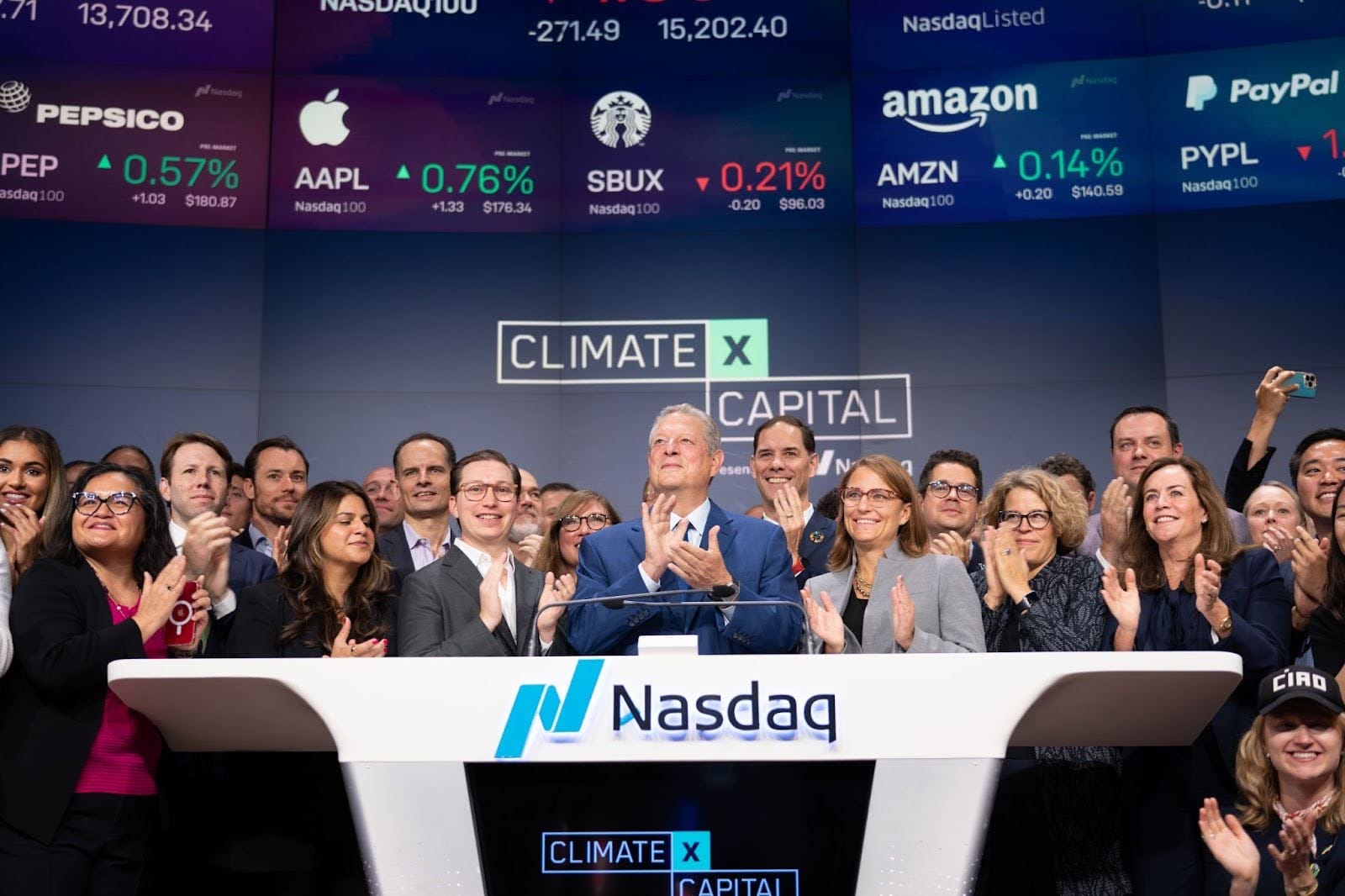
👯♀️ Kim and Sophie unintentionally twinning at the MCJ x CTVC recording

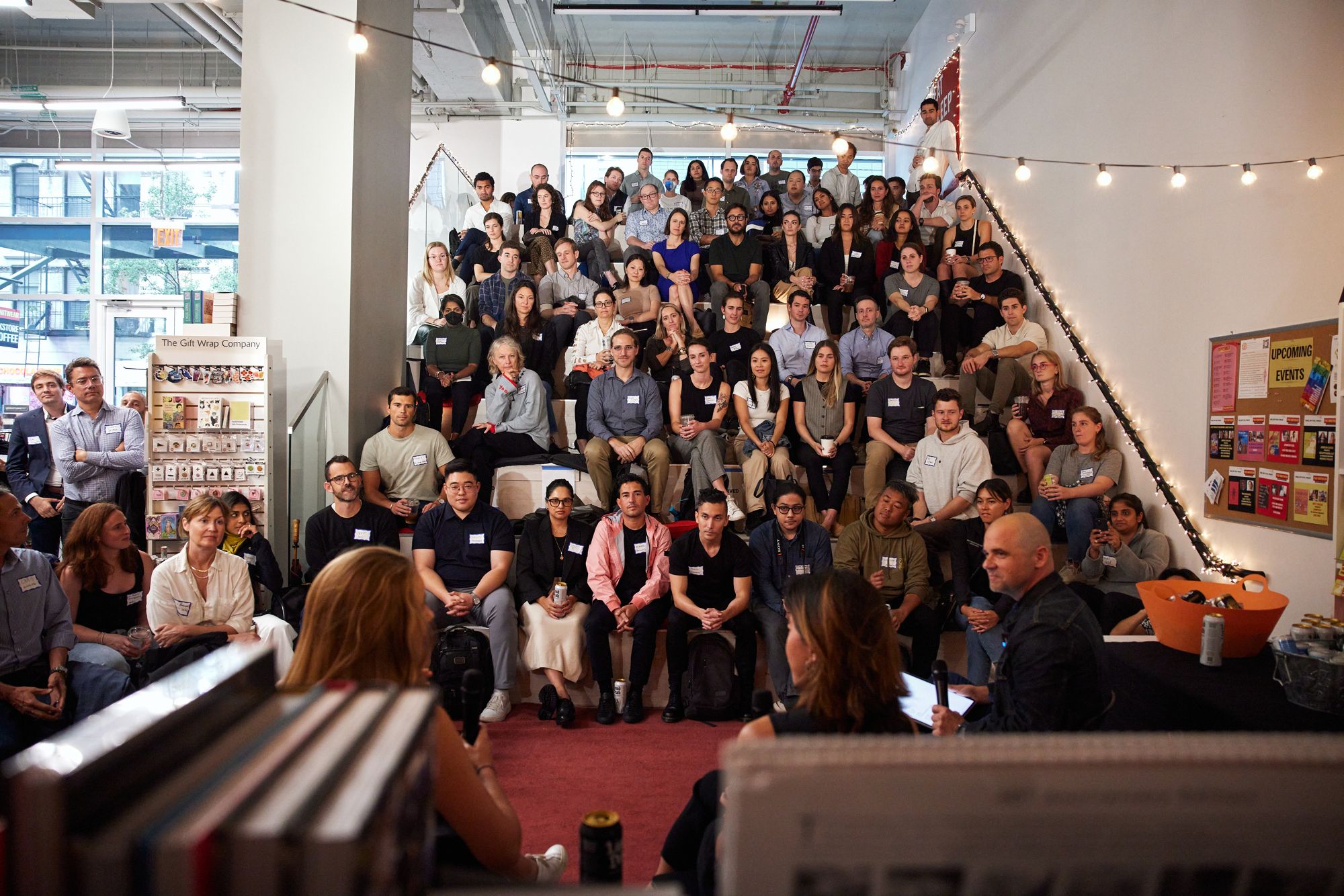
A huge thank you to everyone who joined for this live recording at P&T Knitwear on Monday! But no need for FOMO if you missed it—keep an eye out for the episode early next week 😉
⚡ Heat pumps and electric stoves make an appearance at Rewiring America’s electric happy hour.
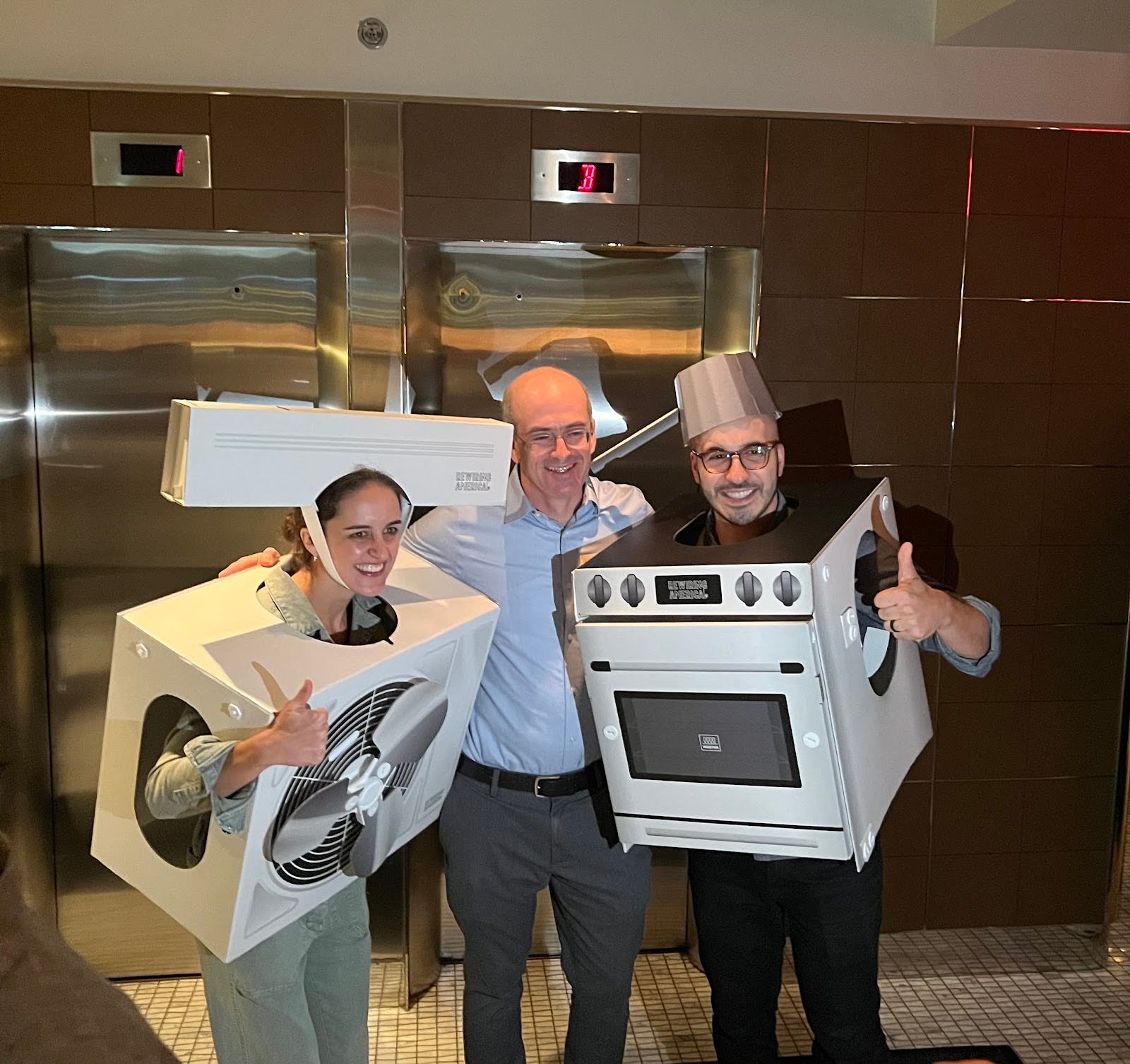
👩🔬 The coolest nerds you’ve ever met share what they’re working on Activate and Newlab demos.
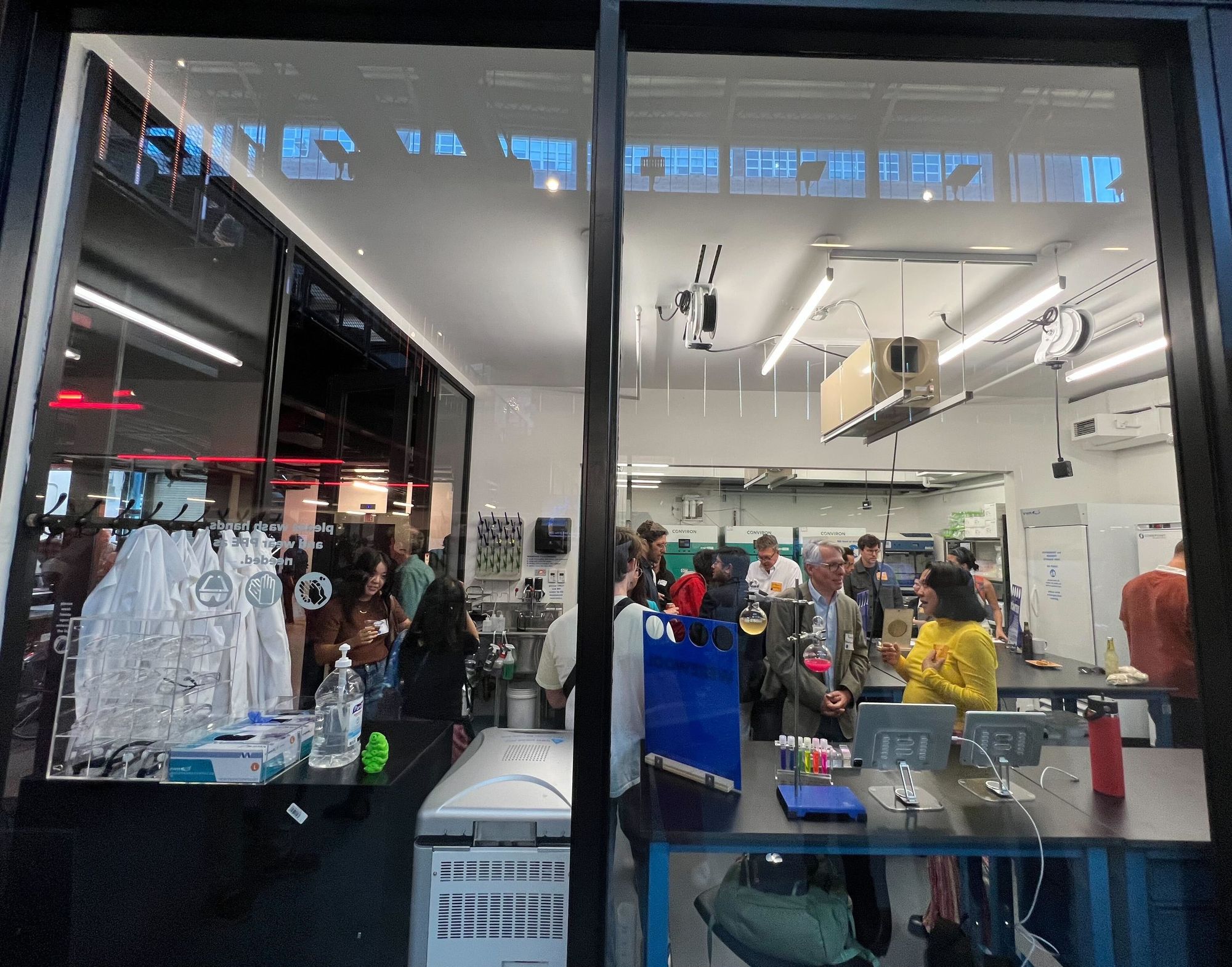
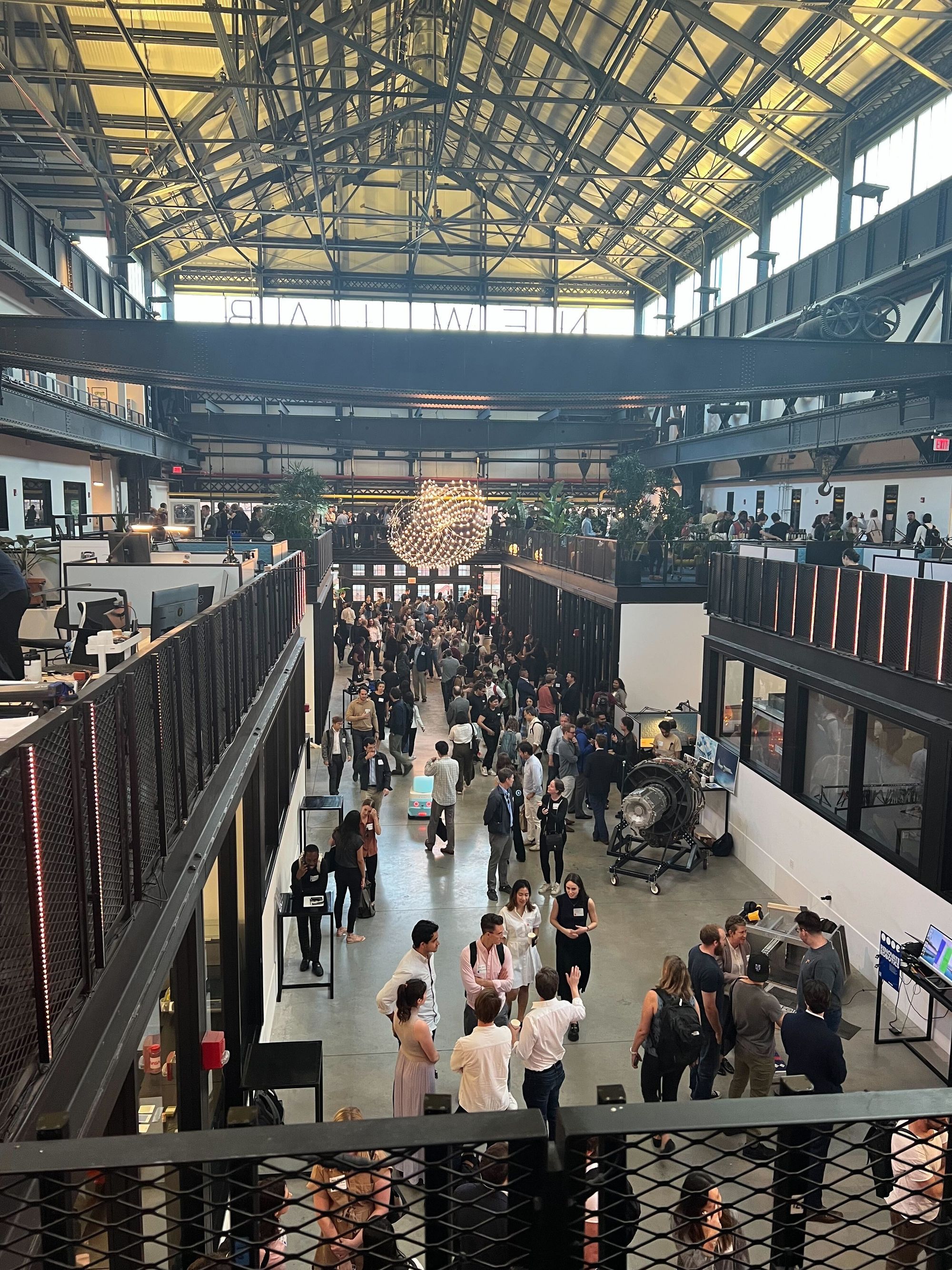
Climate tech startups showed their work at Newlab's innovation space in the Brooklyn Navy Yard on Thursday.
💸 Allllll the climate tech VCs convene at the Climate Capital Summit.
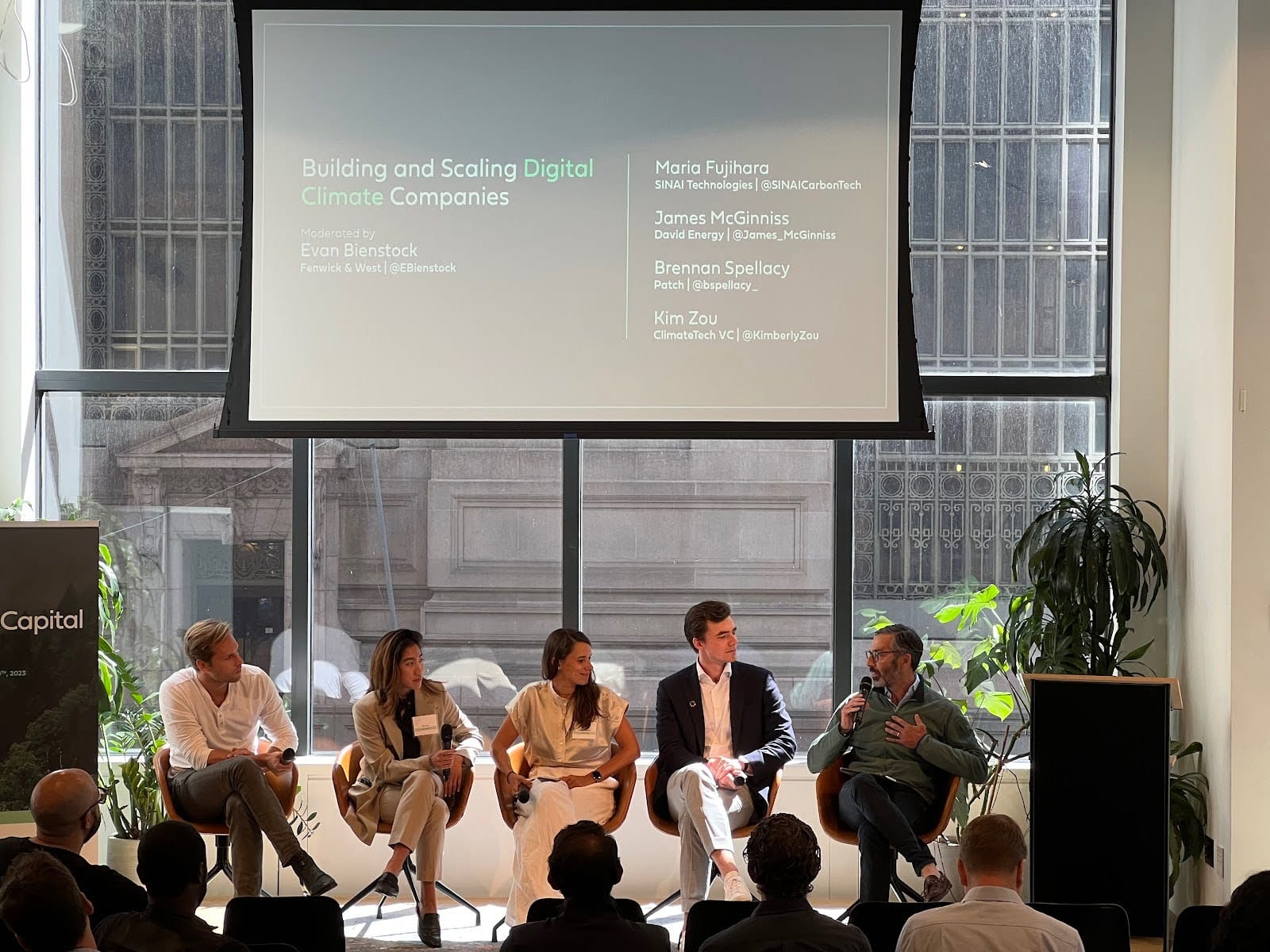
🗺️ Bloomberg sets the bar at transition planning rather than pledges.
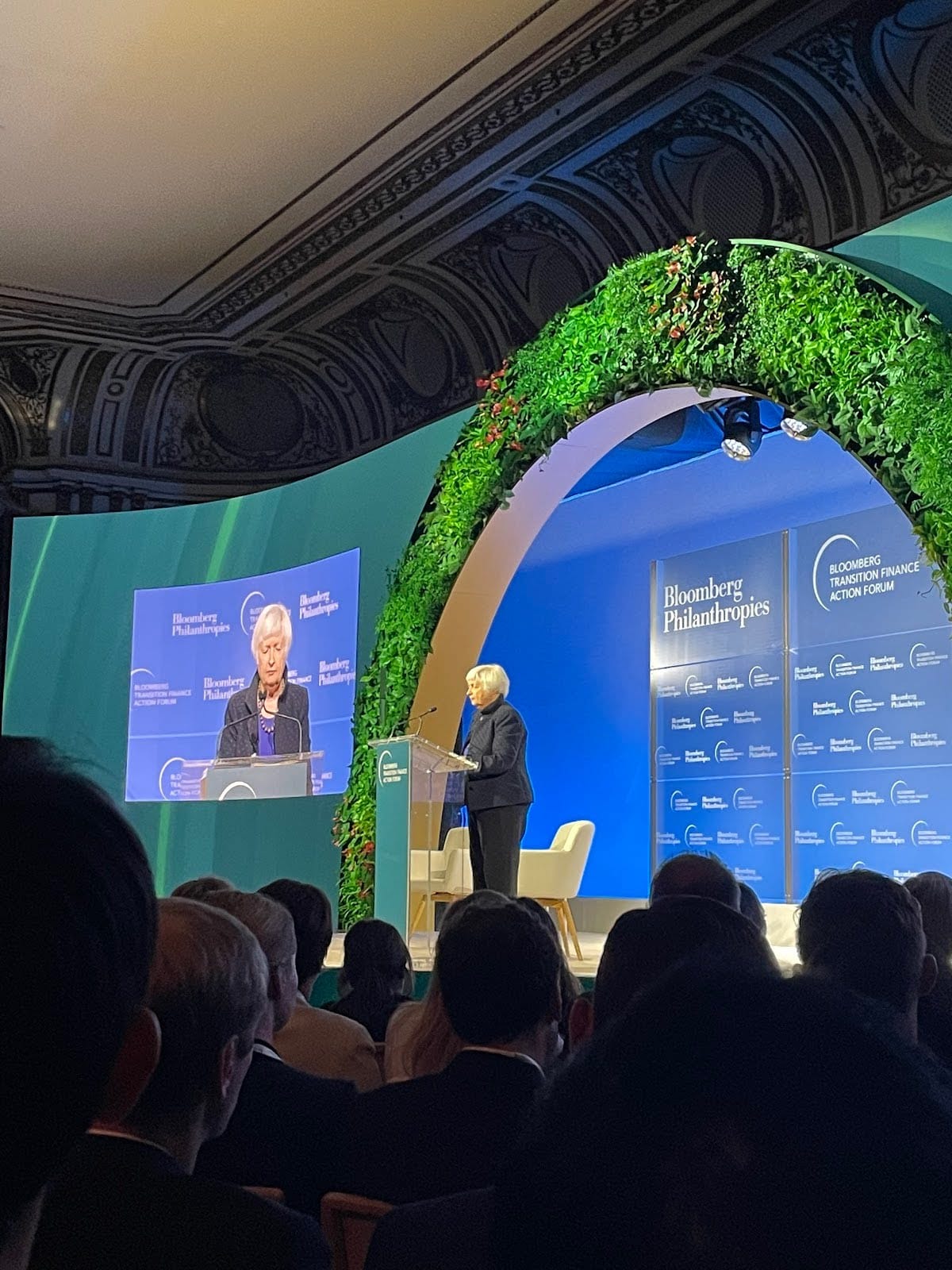
“Changing the tide is not a technological challenge but a financial challenge.” - Michael Bloomberg
"Early stage project funding is like venture capital without the upside.” - Ije Ikoku Okeke, Director of catalytic climate capital, RMI
"You will get in the door if you mention AI," but that makes it hard for enterprises to differentiate what is noise and what is quality. - Mark Fosdike, Datch
"Everybody in at GM" means bringing all components of the business into sustainability work. "This isn't an area for us to compete. We can compete on products, but we need to work together on solutions." - Kristen Siemen, Chief Sustainability Officer, GM
"[Sustainability] needs to be just like safety and quality… We keep talking about green jobs—we need to green all jobs,” incorporating sustainability into finance degrees, design degrees, engineering degrees, etc. - Julia Thayne, Senior Principle, Climate-Aligned Industries, RMI
What was your favorite moment or biggest takeaway from NY Climate Week? Whether you were on the ground this year or catching recaps from home, let us know what you most appreciated and which questions are still lingering as the week comes to a close. Drop us a note at [email protected].

My visit to China's cleantech factories, labs, and HQs

Get the data, insights, and case studies behind the next wave of climate tech

What we heard at the Davos of Distributed Energy Resources